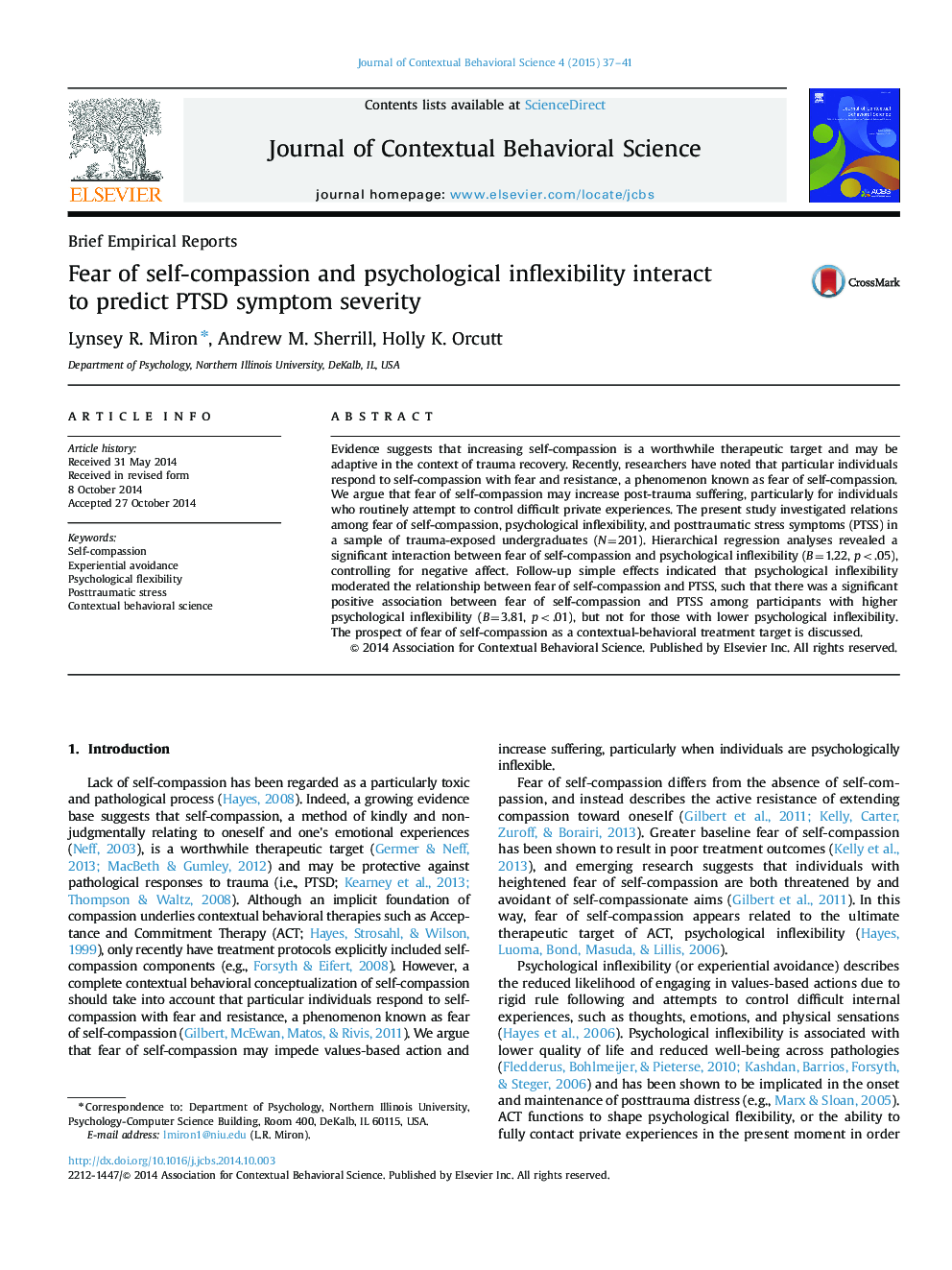| Article ID | Journal | Published Year | Pages | File Type |
|---|---|---|---|---|
| 911227 | Journal of Contextual Behavioral Science | 2015 | 5 Pages |
•We examined predictors of PTSD symptoms among students with trauma exposure.•A fear of self-compassion x psychological inflexibility interaction was tested.•Inflexibility moderated the relation between fear of self-compassion and PTSD.•High inflexibility and fear of self-compassion increased PTSD symptom severity.•Clinical strategies that undermine fear of self-compassion may be warranted.
Evidence suggests that increasing self-compassion is a worthwhile therapeutic target and may be adaptive in the context of trauma recovery. Recently, researchers have noted that particular individuals respond to self-compassion with fear and resistance, a phenomenon known as fear of self-compassion. We argue that fear of self-compassion may increase post-trauma suffering, particularly for individuals who routinely attempt to control difficult private experiences. The present study investigated relations among fear of self-compassion, psychological inflexibility, and posttraumatic stress symptoms (PTSS) in a sample of trauma-exposed undergraduates (N=201). Hierarchical regression analyses revealed a significant interaction between fear of self-compassion and psychological inflexibility (B=1.22, p<.05), controlling for negative affect. Follow-up simple effects indicated that psychological inflexibility moderated the relationship between fear of self-compassion and PTSS, such that there was a significant positive association between fear of self-compassion and PTSS among participants with higher psychological inflexibility (B=3.81, p<.01), but not for those with lower psychological inflexibility. The prospect of fear of self-compassion as a contextual-behavioral treatment target is discussed.
